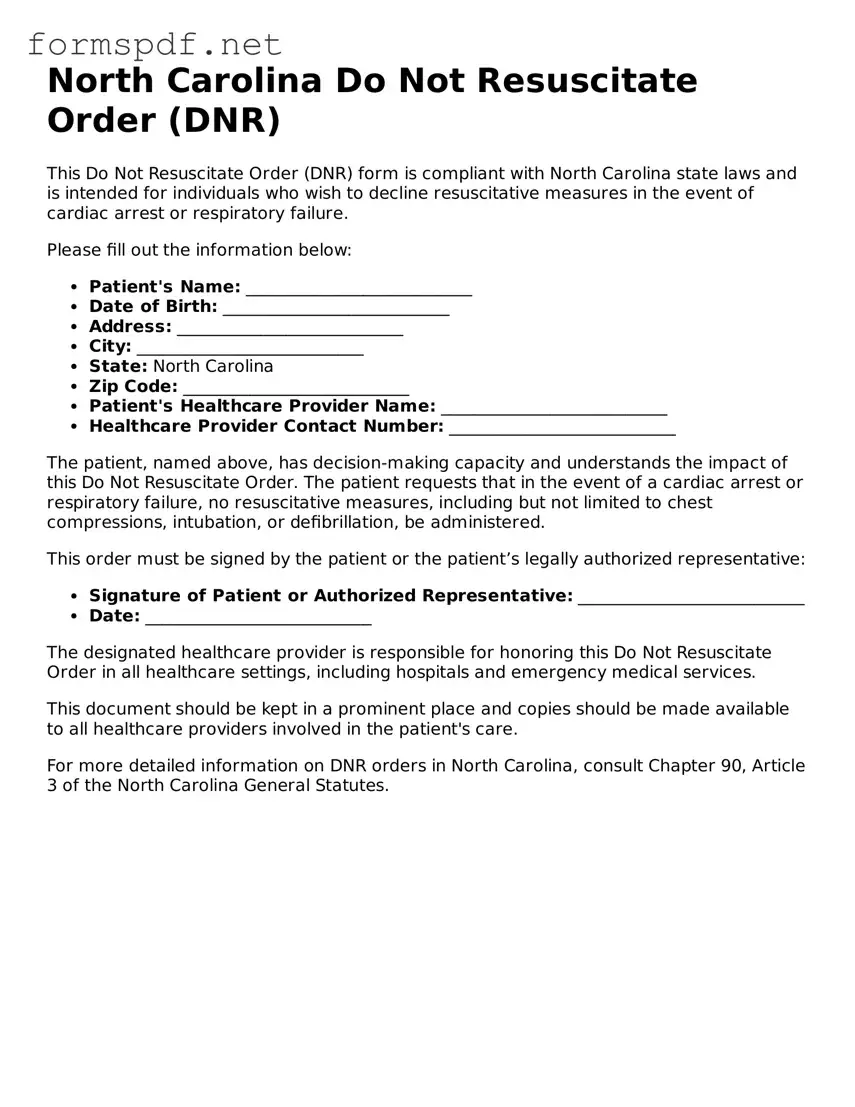Free Do Not Resuscitate Order Form for North Carolina
A North Carolina Do Not Resuscitate Order (DNR) form is a legal document that allows individuals to express their wishes regarding resuscitation efforts in the event of a medical emergency. This form ensures that healthcare providers respect the patient's preferences when it comes to life-saving measures. Understanding the importance of this document can help you make informed decisions about your healthcare; consider filling out the form by clicking the button below.
Launch Editor Now

Free Do Not Resuscitate Order Form for North Carolina
Launch Editor Now

Launch Editor Now
or
⇓ Do Not Resuscitate Order PDF
Don’t leave without finishing the form
Finish your Do Not Resuscitate Order online and download the final version.